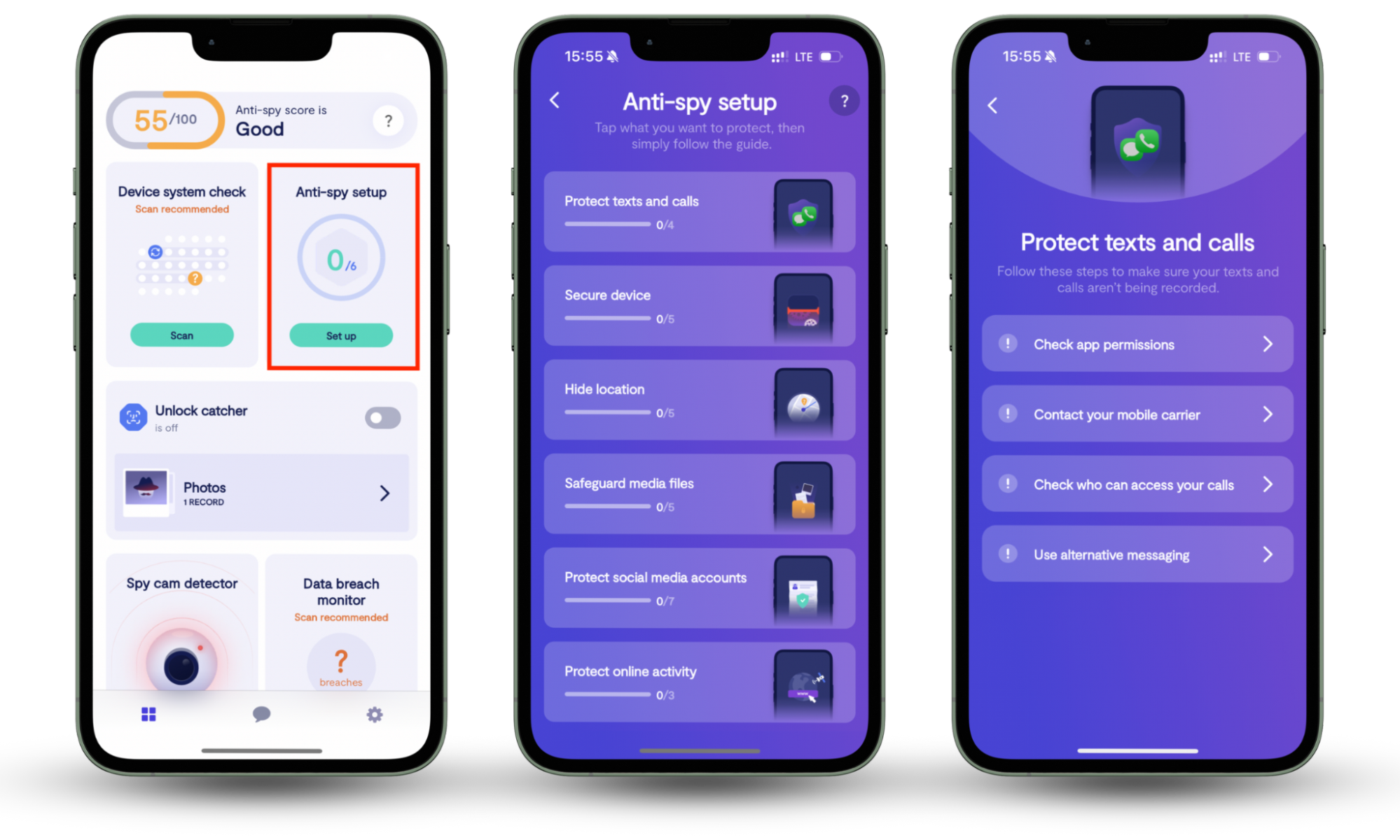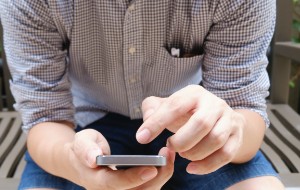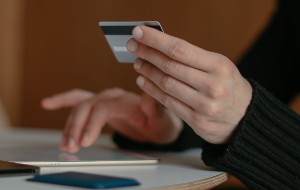Table of contents
- How do mobile devices connect to the internet?
- 4G connections
- Is 4G safe?
- Private Wi-Fi networks
- Safety risks of Wi-Fi networks
- Public Wi-Fi networks
- Risks of public Wi-Fi
- Rogue Wi-Fi hotspots
- Risks of 4G
- How to stay safe on Wi-Fi and 4G
- Conclusion
How do mobile devices connect to the internet?
Mobile devices can connect to the internet in two ways: cellular data or a Wi-Fi network—either a private or public network. Generally, cellular data is the safest method to connect to the internet. A private Wi-Fi network is the next best option, and a public network is the least secure.
Here is how mobile devices connect to the internet:
- Cellular data: Most mobile devices can connect to the internet via a mobile network, such as 4G, 5G, or LTE. This connection requires a SIM card within the device, which connects with a nearby cell tower.
- Private Wi-Fi network: Mobile devices can connect to a private Wi-Fi network facilitated by an internet service provider (ISP). Usually, they require a password to gain access.
- Public Wi-Fi hotspot network: These connections function similarly to private Wi-Fi services. However, they often don’t require a password.
4G connections
4G is the fourth generation of broadband cellular network technology. Succeeding 3G and preceding 5G, in most countries and mobile services, 4G is the most widely used cellular network system used to connect mobile devices to the internet.
4G’s potential and current applications include mobile web access, gaming services, high-definition mobile TV, and video conferencing.
Here’s how three cellular network systems compare in terms of speed:
| System | Download Speed | Upload Speed |
| 3G | 7.2 Mbit/s | 2 Mbit/s |
| 4G | 150 Mbit/s | 50 Mbit/s |
| 5G | 20 Gbit/s | 10 Gbit/s |
Currently, 5G devices are less widely available and 4G devices cannot use 5G cellular data networks. Though 4G isn’t the latest, it still delivers competitive speeds for today’s internet activities.
Is 4G safe?
4G is safe because it uses encryption to secure your internet connection. Encryption technology scrambles your data, so it’s unreadable to anyone without the decryption key. In case of a data breach, a 4G connection protects all your private information.
Due to encryption, connecting your mobile device to a 4G network offers better security than a Wi-Fi network, especially a public Wi-Fi hotspot. Although a private Wi-Fi connection can encrypt your connection, mobile data is still safer. Though both have their own risks, hackers more commonly intercept Wi-Fi communications.
Private Wi-Fi networks
These connections are mostly found in homes and offices. Your mobile device connects to a private Wi-Fi network through a router, which functions as a gateway between your device and the internet. The connection is usually password-protected and encrypted. An internet service provider (ISP) supplies the internet through Wi-Fi.
Safety risks of Wi-Fi networks
The safety of a Wi-Fi network is largely determined by its security protocol. Featured on routers, these protocols securely transfer data between devices. From least secure to most secure, the protocols are: WEP, WPA, WPA2, and WPA3.
Here’s how the security protocols compare:
- WEP: The oldest security protocol. WEP is now considered out of date. Hackers can easily steal data when routers use this security protocol.
- WPA/WPA2: The standard protocol. Most websites today use WPA or WPA2. Encryption makes these protocols unreadable to anyone who doesn't have the encryption key, even if they intercept them. However, the possibility of data breaches still exists.
- WPA3: The latest protocol. WPA3 is the most secure protocol, but it’s still not widely used. Only newer routers offer this option.
Is your Wi-Fi secure? Look up what security protocol your router is using to find out.
Public Wi-Fi networks
These connections are mostly found in cafes, shops, airports, and other public places. Like their private counterparts, an ISP provides public Wi-Fi networks. However, unlike private Wi-Fi, public Wi-Fi networks often don’t require a password for access.
Risks of public Wi-Fi
Public Wi-Fi is vulnerable to the same risks as a private Wi-Fi connection—and more. It may lack encryption or password protection, making it vulnerable to many privacy and security risks. Connecting to public Wi-Fi could result in the theft of private data like banking information and social media credentials.
Rogue Wi-Fi hotspots
A rogue Wi-Fi hotspot is a fake and malicious Wi-Fi network designed to resemble a real one—they’re also known as evil twins. To trick victims into connecting to them, they often have the same or similar name to a legitimate public Wi-Fi hotspot. Once connected, hackers can steal a victim’s personal data and introduce malware to their device.
So how are you supposed to stay safe online while sipping a cappuccino in a cafe?
While you can’t control the network, you can make your device harder to track or exploit. Clario Anti Spy’s anti-spy setup walks you through key privacy settings to help reduce what your device shares and block unwanted access.
Follow these steps to start the Anti-spy setup on your device:
- Download Clario Anti Spy and create an account.
- Tap Anti-spy setup.
- Go through the guided checklist to review app permissions, privacy settings, and hidden risks.
- Apply the recommended changes to improve your device’s protection.

It’s a simple way to ensure that your phone isn’t using more data than it should on a public network.
But don’t stop there! Optimize online security using our dedicated VPN when connecting to private Wi-Fi networks or cellular data. Clario’s VPN hides your IP address so that you can evade your ISP, along with other prying eyes. Plus, you can connect to servers abroad to slip past content blocks and other restrictions.
Risks of 4G
Though there are risks involved in connecting to a 4G network, they are more theoretical and rare—especially compared to a Wi-Fi connection. When trying to find vulnerabilities, some white hat hackers, who usually hack for research purposes, were able to hack into 4G networks through man-in-the-middle attacks (MITM).
A MITM attack places itself between two unsuspecting parties and listens in on the data that’s exchanged. This could be between people, a person, an app, or between two devices.
However, you shouldn’t worry too much. Generally, cellular data is secure. Technically, 4G can be hacked, but it’s difficult to do so—and hackers focus their attention on Wi-Fi connections.
How to stay safe on Wi-Fi and 4G
Cellular data vs. Wi-Fi: which do you prefer? Whichever one you use, applying established cybersecurity tips will keep you safe from hackers. No method of connecting to the internet will guarantee your safety. It’s crucial to take proactive steps to protect yourself.
Here’s how to stay safe on Wi-Fi and 4G:
- Avoid public Wi-Fi hotspots: These are the most vulnerable to hacking. Only connect to password-protected private Wi-Fi networks—or even better, use cellular data.
- Avoid using sensitive data: If you must use public Wi-Fi, avoid websites and apps that require your personal information, like online shopping and social media. Hackers are on the prowl for sensitive data.
- Use two-factor authentication (2FA): Sites and apps enforced with 2FA require more than one form of validation to grant access. So if hackers get your password or break past network security, your private data is still safe.
- Use a firewall and antivirus software: Together, these cybersecurity tools can detect unauthorized network or device activity and eradicate malware threats.
- Update software and operating systems (OS): Updates often contain patches to newly detected device vulnerabilities. Plus, it’s easier to hack out-of-date devices and systems.
Want more tips? Check out our top internet safety rules to learn more about keeping yourself and others safe online.
Conclusion
Though 4G is safer than Wi-Fi, no network connection is immune to risks. You may not be able to control the network, but you can control how your device handles your data.
Clario’s Anti-spy setup helps you check your privacy settings, remove unnecessary permissions, and reduce the chances of being tracked or exposed while you browse.


